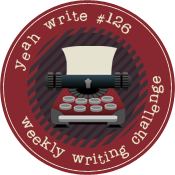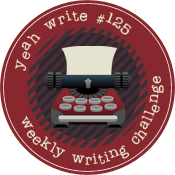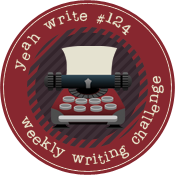He liked the girl without the bra. I could sense it, could literally feel his animal attraction to her.  The three of us were standing around after class, waiting for the elevator. They were talking and laughing. Finally, I couldn’t take it anymore and opted to hike down the stairs.
I met him in grad school. We both studied American lit, neither of us had made the cut for the PhD program. We made due with our master’s studies.
I arrived ten minutes early to my first meeting with my advisor. I found her door closed, blurred voices escaping from inside the office. I sat outside, on the floor, reading a copy of the first book on the syllabus. I waited forty-five minutes before I worked up the nerve to knock.
He showed up thirty minutes in. He was hot. Tall, dark hair, nice smile. I did say hi, so at least there was that. I smiled. But, you know, I was already married. Year one. So I didn’t show interest. But he was perfect. He wore his button-down shirt with the sleeves rolled up, a messenger bag slung across his chest.
Who knows what would have happened if I had not already been taken. But honestly, I had no clue. I was 24, and I was only beginning to invent myself. Going braless was not on my checklist. Marriage was, and so was grad school. I was new, awkward, and in a rush to get things right.
Finally I stuffed my book into my bag, stood up, and said, “I guess I should knock.†I didn’t laugh and I don’t remember properly introducing myself. I knocked on the professor’s door and interrupted her meeting. Afterwards, the tall guy and I glanced at each other as I held her door open for him.
Here’s the thing: Doing things right made me unhappy. I thought that I wanted to quit my job and start grad school. I thought that I wanted to rush home each night after class. I thought that I didn’t need to be all that friendly to my single schoolmates because I had my real married friends. I thought that one misstep would bring my whole life crumbling down. I thought that things that made me uncomfortable were bad.
But you know what? I was wrong. I wanted to flirt. I wanted to forget my bra. Have I ever mentioned how much I bombed at grad school? I did all of the assignments, but I completely missed out on the experience. I still graduated, though.





